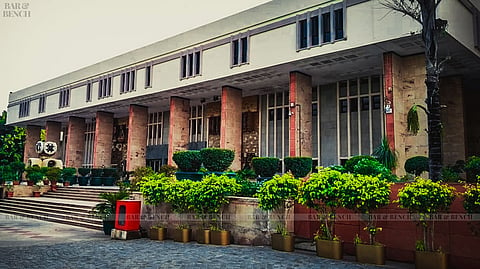
- News
- Columns
- Interviews
- Law Firms
- Apprentice Lawyer
- Legal Jobs
- हिंदी
- ಕನ್ನಡ

The Delhi High court has opined that digital and electronic equipment with a tracking system ought to be introduced in India to monitor the movement of the accused released on bail. (State vs Sanjeev Chawla)